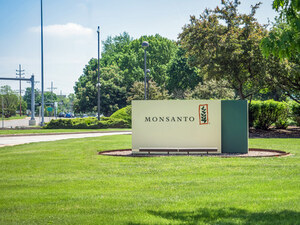 According to the U.S. Environmental Protection Agency, in February 2020, after receiving and considering public comments on the glyphosate proposed interim decision, the agency found that there are no risks of concern to human health when glyphosate is used in accordance with its current label. EPA also found that glyphosate is unlikely to be a human carcinogen – good news for Bayer. One month later, the U.S. Court of Appeals for the Ninth Circuit challenged the EPA’s glyphosate ID.
According to the U.S. Environmental Protection Agency, in February 2020, after receiving and considering public comments on the glyphosate proposed interim decision, the agency found that there are no risks of concern to human health when glyphosate is used in accordance with its current label. EPA also found that glyphosate is unlikely to be a human carcinogen – good news for Bayer. One month later, the U.S. Court of Appeals for the Ninth Circuit challenged the EPA’s glyphosate ID.And on February 5, 2024, a U.S. appeals court refused to dismiss a Georgia doctor's lawsuit claiming that Bayer’s weedkiller caused cancer, according to Reuters.
If the 11th Circuit had broken with those other appeals courts, it would have made it more likely for the U.S. Supreme Court to take up the issue. Another federal appeals court, the Philadelphia-based 3rd Circuit, is currently considering the issue in a separate case.
Plaintiff Dr. David Carson was diagnosed in 2016 with a type of cancer called malignant fibrous histiocytoma after using Roundup for 30 years, according to court documents. (Although most plaintiffs allege that Roundup caused non-Hodgkin’s lymphoma, some plaintiffs have been diagnosed with other types of cancers.)
A trial judge dismissed most of his complaint, who agreed with Bayer that Carson’s failure-to-warn claims were barred by federal law. But in 2022 the 11th Circuit panel disagreed and his case was revived. According to the panel, a Georgia law that requires companies to warn consumers of foreseeable dangers from using their products does not conflict with the Federal Insecticide, Fungicide, and Rodenticide Act, the federal law under which Roundup’s label was approved. And in that case, Bayer/Monsanto could have put a cancer warning on Roundup to comply with Georgia law.
READ MORE ROUNDUP CANCER LEGAL NEWS
Despite its recent spate of losses, Bayer still believes it can win key victories on appeal, having won10 of the last 16 cases at trial. However, the cases lost set Bayer back more than $4 billion in jury verdicts since last October. Reuters said that some of those awards are likely to be reduced on appeal because they exceed U.S. Supreme Court guidance.
As of January 2024, Monsanto had reached settlement agreements in nearly 100,000 Roundup lawsuits, costing Monsanto about $11 billion. These settlements account for nearly 80 percent of all pending Roundup claims that were settled in 2020 but up to 50,000 active Roundup lawsuits remain. New Roundup lawsuits continue to be filed.
